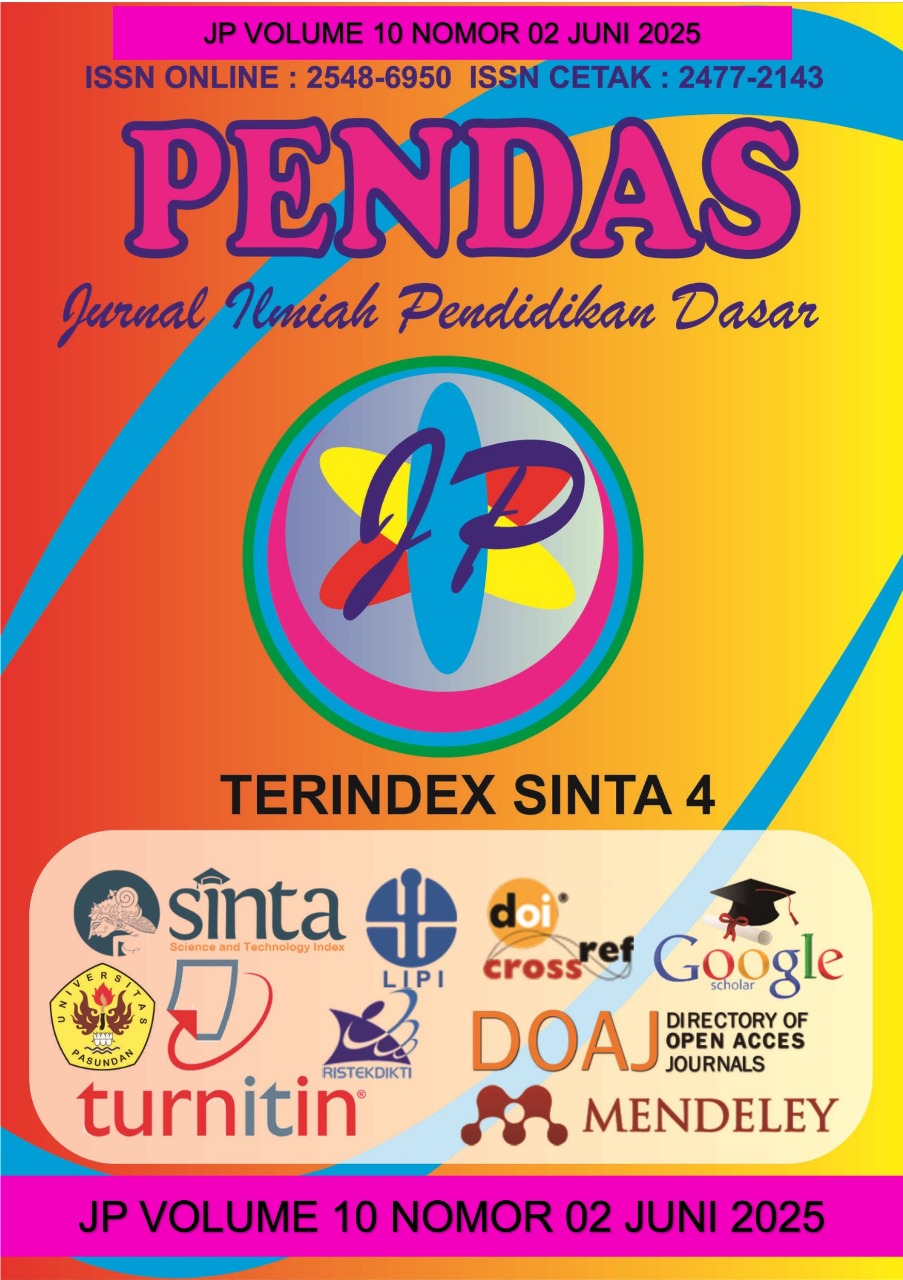PENERAPAN SCAFFOLDED DEBATE BATTLE CARD UNTUK MENINGKATKAN KETERAMPILAN KOMUNIKASI PESERTA DIDIK KELAS VIIE SMP LABORATORIUM UM
DOI:
https://doi.org/10.23969/jp.v10i02.24843Keywords:
Scaffolded debate, speaking skills, social science educationAbstract
Low verbal communication skills have become a significant challenge in 21st century learning, especially at the junior high school level. Based on the results of the initial questionnaire in class VIIE SMP Laboratorium UM, most students have difficulty expressing their opinions orally, and many feel limited in vocabulary mastery, which has an impact on low discussion participation and argumentation skills. This study aims to develop and test the effectiveness of Scaffolded Debate Battle Card media in improving students' communication skills. Using the Design Thinking approach which consists of five stages (empathize, define, ideate, prototype, and test), researchers developed learning media in the form of six types of structured debate cards (Statement Card, Evidence Card, Counter Argument Card, Rebuttal Card, Logical Fallacy Card, and Wild Card) equipped with Debate Analysis Sheets. The implementation was conducted on the topic “The Influence of Geographical Factors on Cultural Diversity” involving 32 learners who were divided into pro and contra groups. The results showed substantial improvement on various dimensions of oral communication. Learners showed a marked reduction in communication barriers, including less difficulty expressing opinions, less fear of public speaking, increased ability to explain ideas clearly, and better word choice in discussions. Debate preparation skills showed significant improvement, especially in students' ability to gather additional information and develop a deeper understanding of the debate topic. The media proved effective in overcoming psychological and technical barriers in verbal communication, as well as increasing students' confidence and motivation to learn in the context of social studies learning.
Downloads
References
Byrnes, J. P., & Dunbar, K. N. (2014). The nature and development of critical-analytical thinking. *Educational Psychology Review, 26*(4), 477–493. https://doi.org/10.1007/s10648-014-9284-0
Deterding, S., Dixon, D., Khaled, R., & Nacke, L. (2011). From game design elements to gamefulness: Defining "gamification". In *Proceedings of the 15th International Academic MindTrek Conference: Envisioning Future Media Environments* (pp. 9–15). ACM. https://doi.org/10.1145/2181037.2181040
Facione, P. A. (2011). *Critical thinking: What it is and why it counts*. Measured Reasons LLC. https://www.insightassessment.com/article/critical-thinking-what-it-is-and-why-it-counts
Gulnaz, F. (2020). The role of classroom debate in developing critical thinking skills of EFL learners. *International Journal of English Linguistics, 10*(3), 121–134. https://doi.org/10.5539/ijel.v10n3p121
Hamari, J., Koivisto, J., & Sarsa, H. (2014). Does gamification work? A literature review of empirical studies on gamification. In *2014 47th Hawaii International Conference on System Sciences* (pp. 3025–3034). IEEE. https://doi.org/10.1109/HICSS.2014.377
Hmelo-Silver, C. E., Duncan, R. G., & Chinn, C. A. (2007). Scaffolding and achievement in problem-based and inquiry learning: A response to Kirschner, Sweller, and Clark (2006). *Educational Psychologist, 42*(2), 99–107. https://doi.org/10.1080/00461520701263368
Kapp, K. M. (2012). *The gamification of learning and instruction: Game-based methods and strategies for training and education*. John Wiley & Sons. https://www.wiley.com/en-us/The+Gamification+of+Learning+and+Instruction:+Game+based+Methods+and+Strategies+for+Training+and+Education-p-9781118096345
Kennedy, R. (2007). In-class debates: Fertile ground for active learning and the cultivation of critical thinking and oral communication skills. *International Journal of Teaching and Learning in Higher Education, 19*(2), 183–190. http://www.isetl.org/ijtlhe/pdf/IJTLHE19(2).pdf#page=89
Lin, X., Hmelo, C., Kinzer, C. K., & Secules, T. J. (2012). Designing technology to support reflection. *Educational Technology Research and Development, 47*(3), 43–62. https://doi.org/10.1007/BF02299731
Majidi, A., Janssen, D., & de Graaff, R. (2021). Individual differences in second language speech fluency: The effect of classroom debates. *System, 97*, 102443. https://doi.org/10.1016/j.system.2020.102443
Roy, A., & Baker, W. (2019). The effects of structured debate cards on speaking anxiety among middle school EFL learners. *International Journal of Applied Linguistics & English Literature, 8*(2), 38–47. https://doi.org/10.7575/aiac.ijalel.v.8n.2p.38
Savery, J. R. (2015). Overview of problem-based learning: Definitions and distinctions. In A. Walker, H. Leary, C. E. Hmelo-Silver, & P. A. Ertmer (Eds.), *Essential readings in problem-based learning: Exploring and extending the legacy of Howard S. Barrows* (pp. 5–15). Purdue University Press. https://docs.lib.purdue.edu/ijpbl/vol1/iss1/3/
Vygotsky, L. S. (1978). *Mind in society: The development of higher psychological processes*. Harvard University Press. https://www.hup.harvard.edu/catalog.php?isbn=9780674576292
Zare, P., & Othman, M. (2015). Students' perceptions toward using classroom debate to develop critical thinking and oral communication ability. *Asian Social Science, 11*(9), 158–170. https://doi.org/10.5539/ass.v11n9p158
Zare, P., & Othman, M. (2013). Classroom debate as a systematic teaching/learning approach. *World Applied Sciences Journal, 28*(11), 1506–1513. https://www.researchgate.net/publication/288655341_Classroom_debate_as_a_systematic_teaching_learning_approach
Downloads
Published
Issue
Section
License
Copyright (c) 2025 Pendas : Jurnal Ilmiah Pendidikan Dasar

This work is licensed under a Creative Commons Attribution 4.0 International License.














































